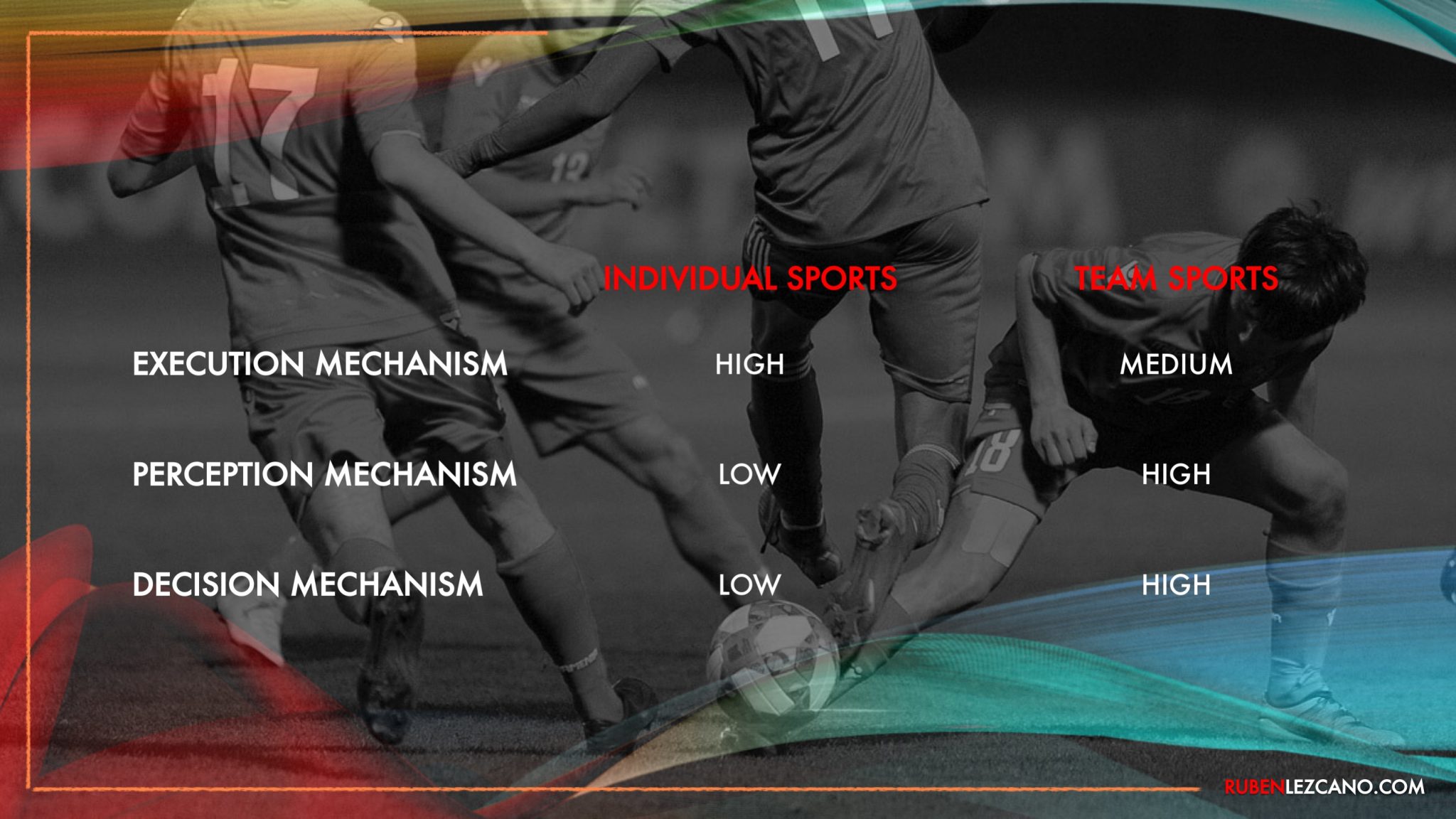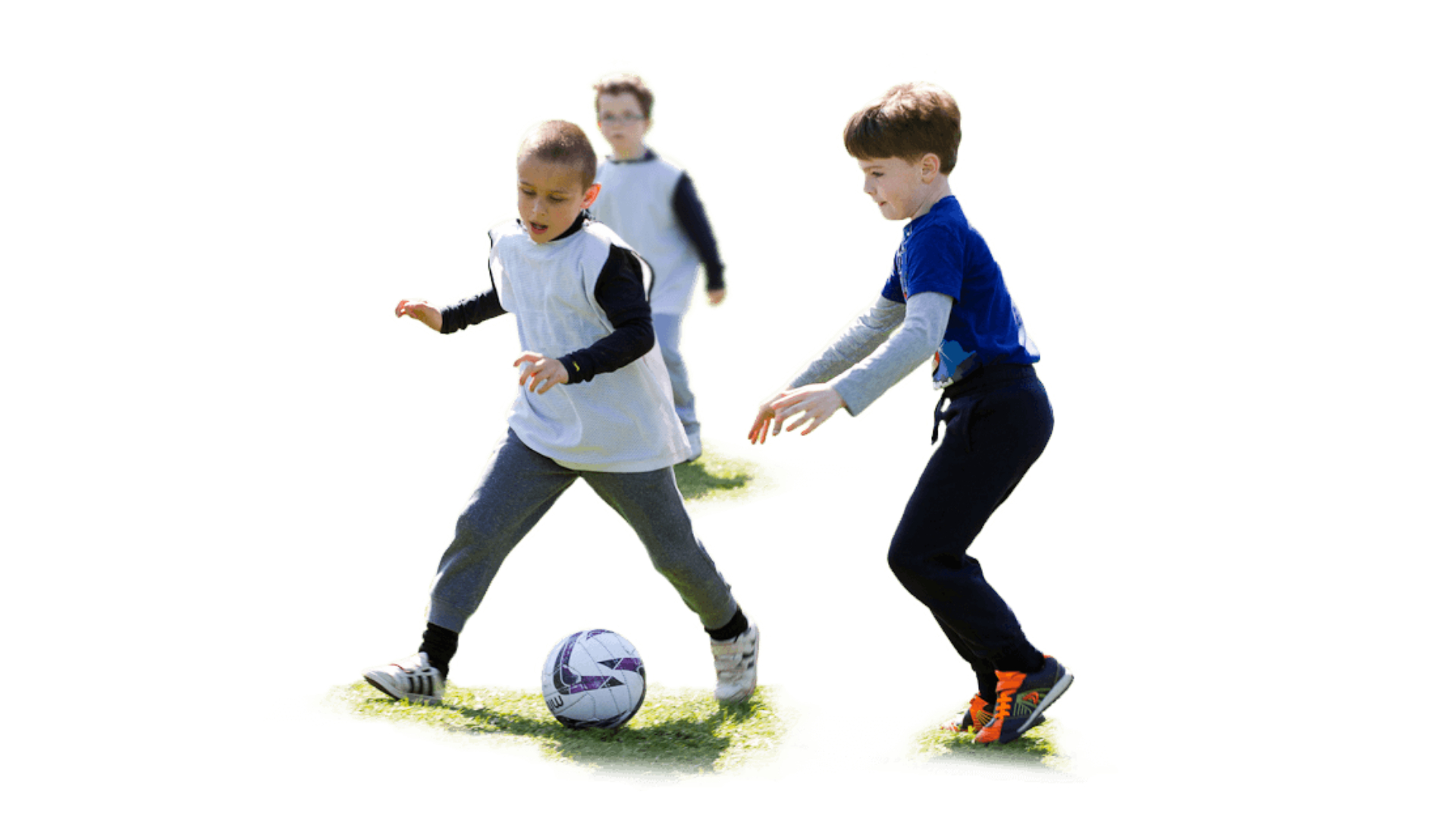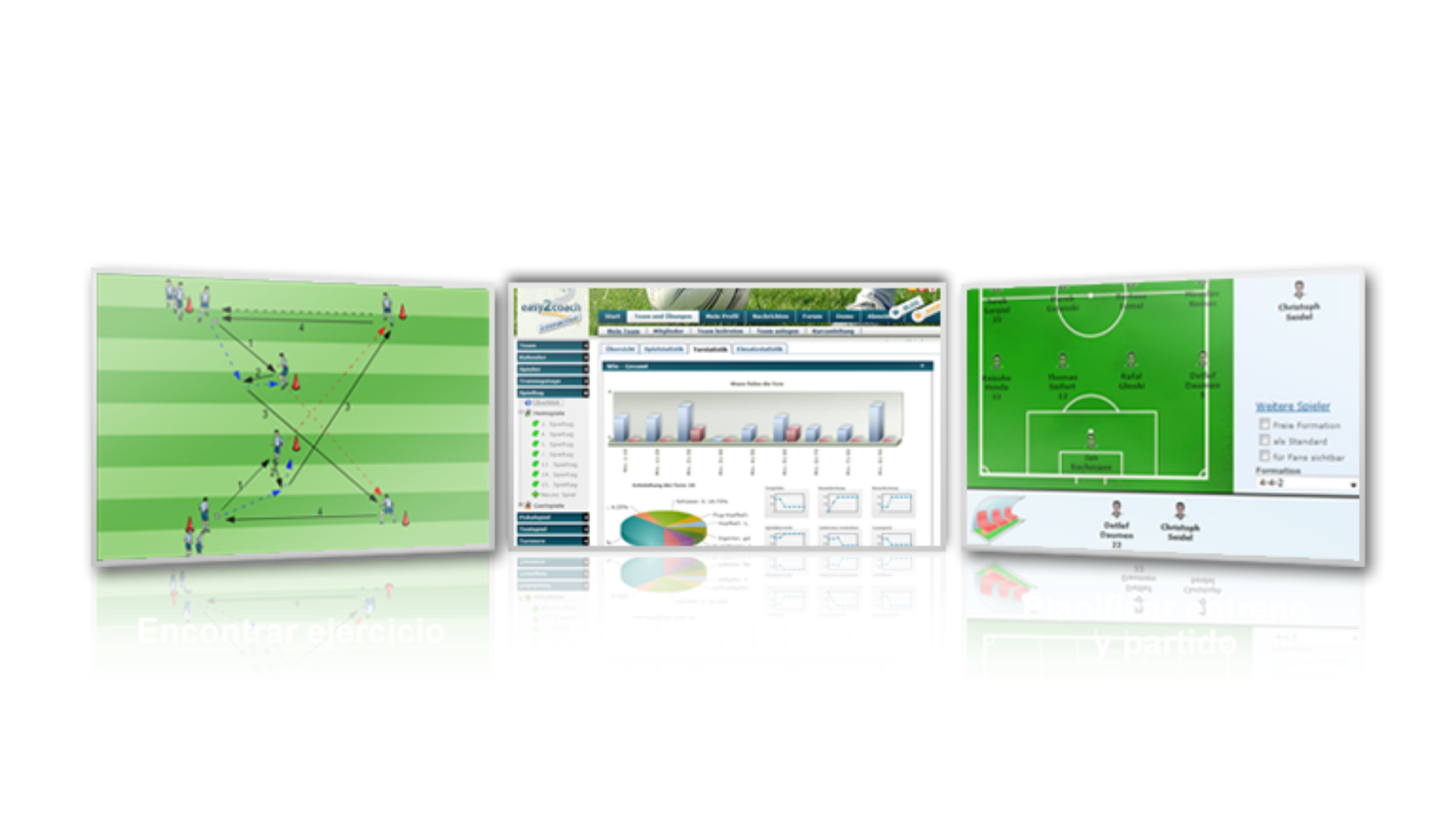METHODOLOGY
DIFFERENCES BETWEEN TEAM SPORTS & INDIVIDUAL SPORTS

In general terms, we can affirm that the principles that guide the training in individual sports are those that we have adopted in the training of team sports. However, the characteristics of these two types of sports are very different, and therefore we should adopt a different methodological approach as well.
In most individual sports the environment is fixed, there are hardly any changing elements to pay attention to, and therefore the athlete does not have to make any decisions, being able to focus all his attention and effort on technical execution. However, in team sports the athlete faces an open environment, in which he must pay attention to a multitude of changing stimuli based on which to make decisions that he will later have to execute. We can say that while in individual sports the final result of the action depends almost exclusively on the athlete’s ability to execute, in team sports the final result of the action depends on the athlete’s ability to perceive the elements that surround him, interpret the situation, make the most appropriate decision and finally execute it.
Thus, from a methodological point of view, team sports need a different approach to training, which considers not only the need to help footballers to develop physically and technically, but also to develop cognitively, improving their ability to extract the most important information from the environment, identify situations and habitual game patterns, both their own and those of the rival, and make the most accurate decisions possible based on the information obtained.





